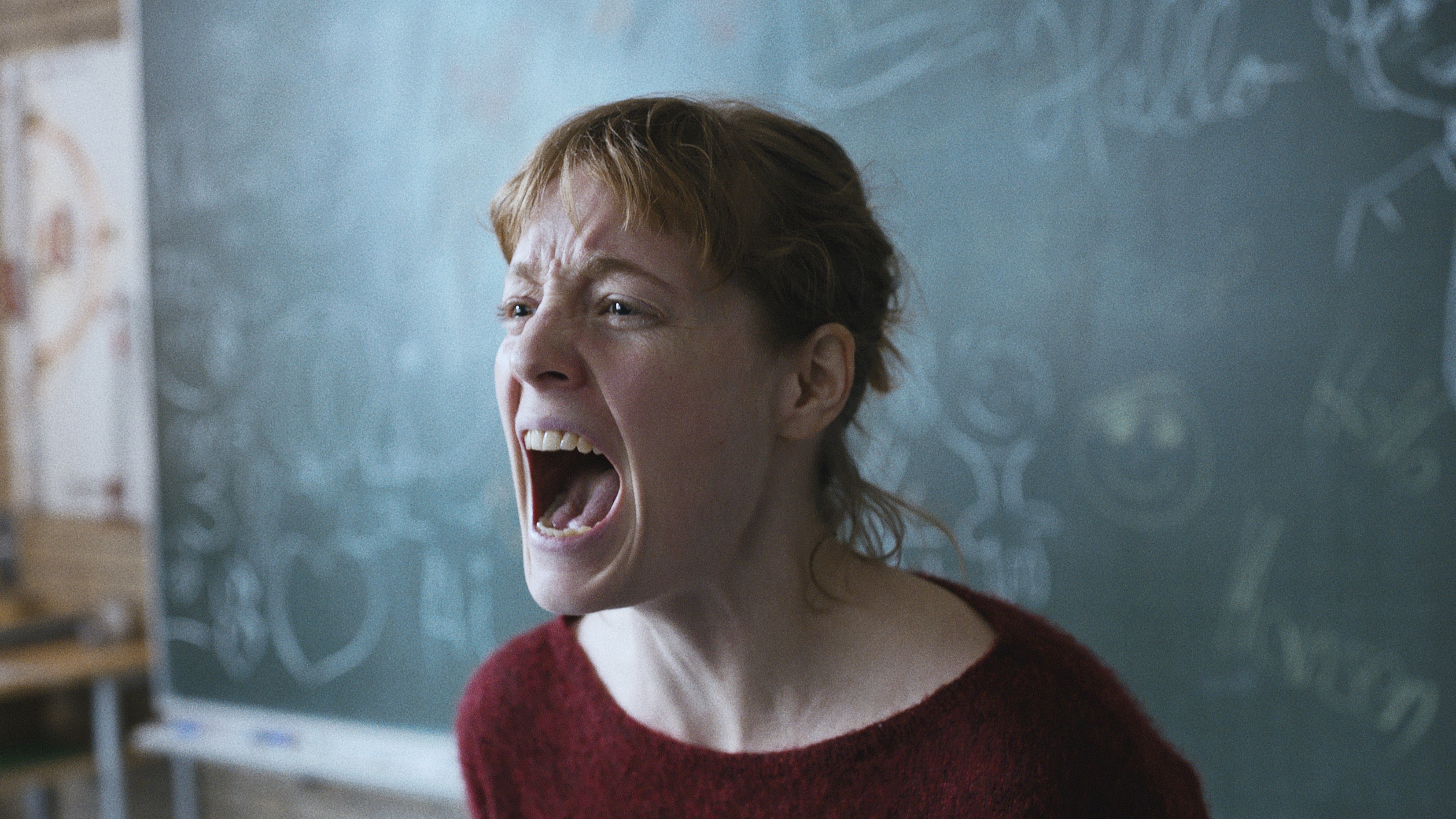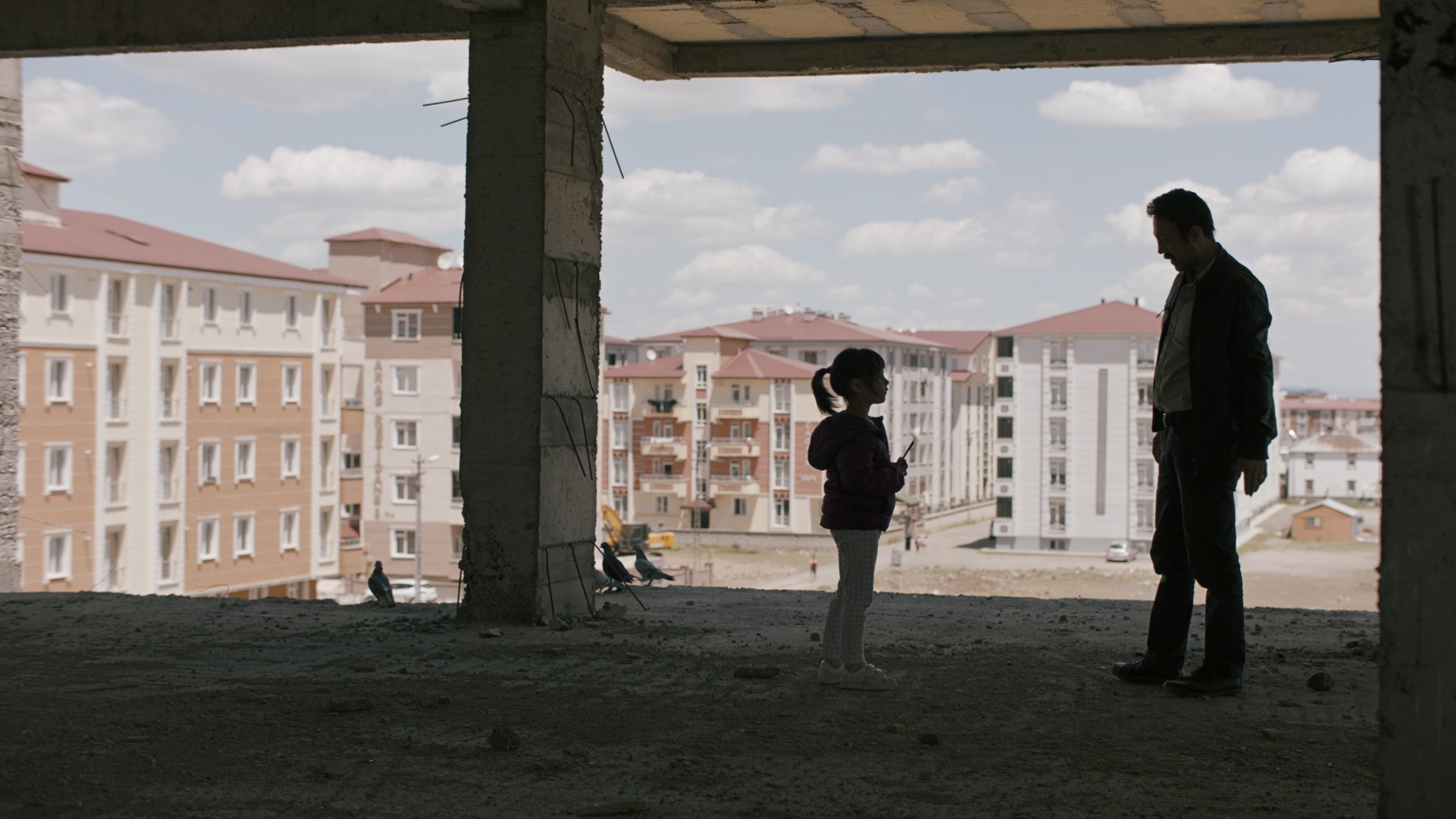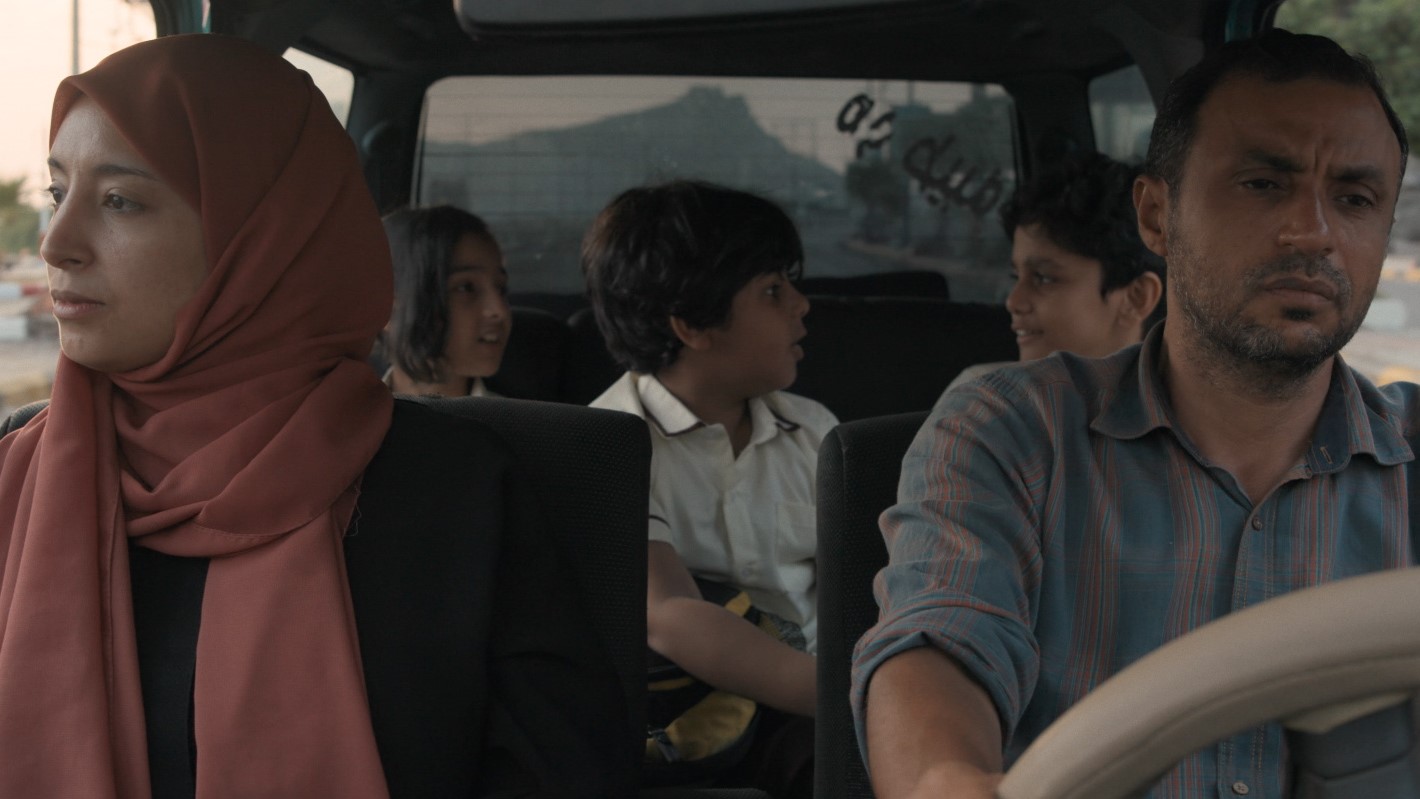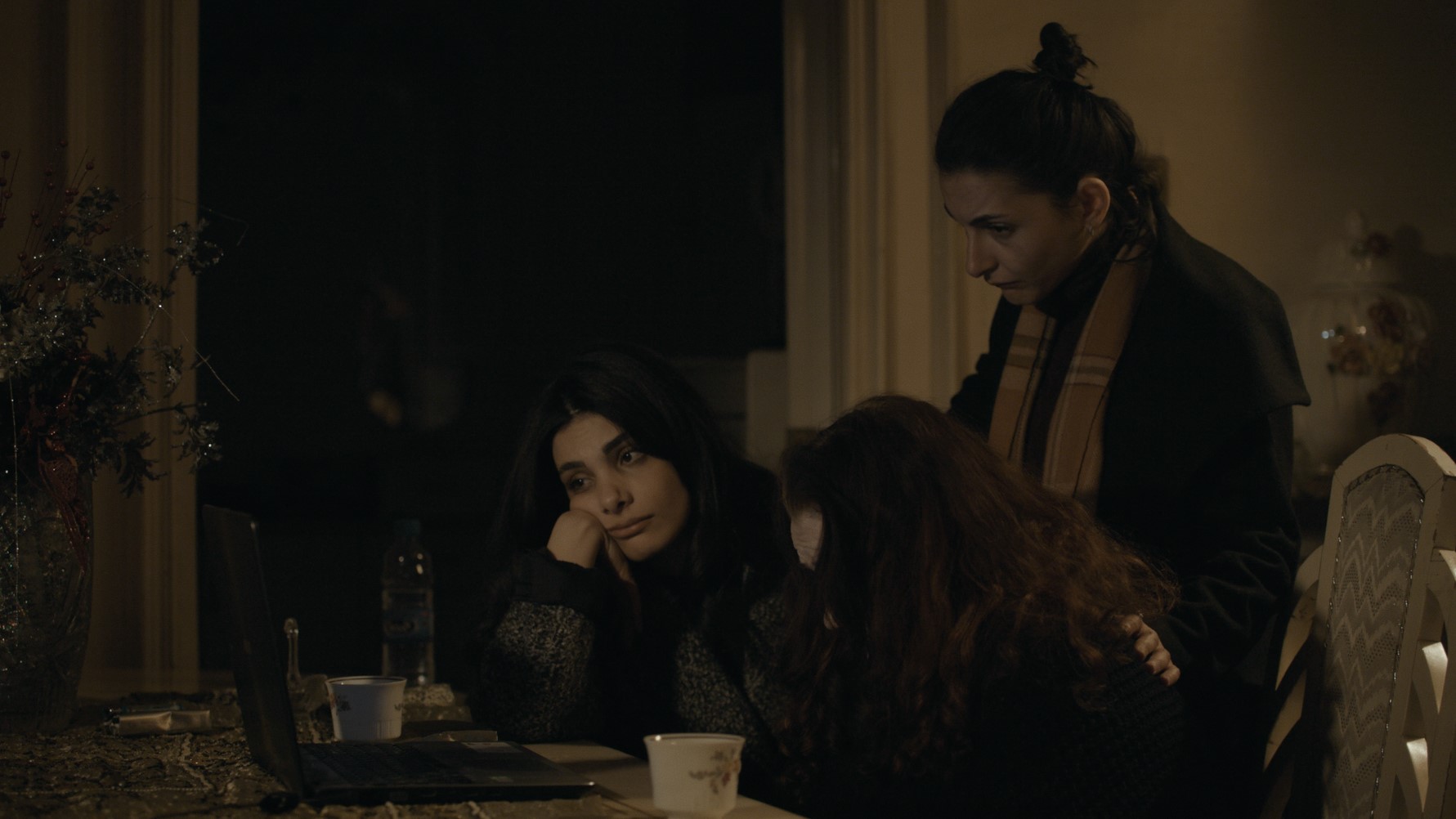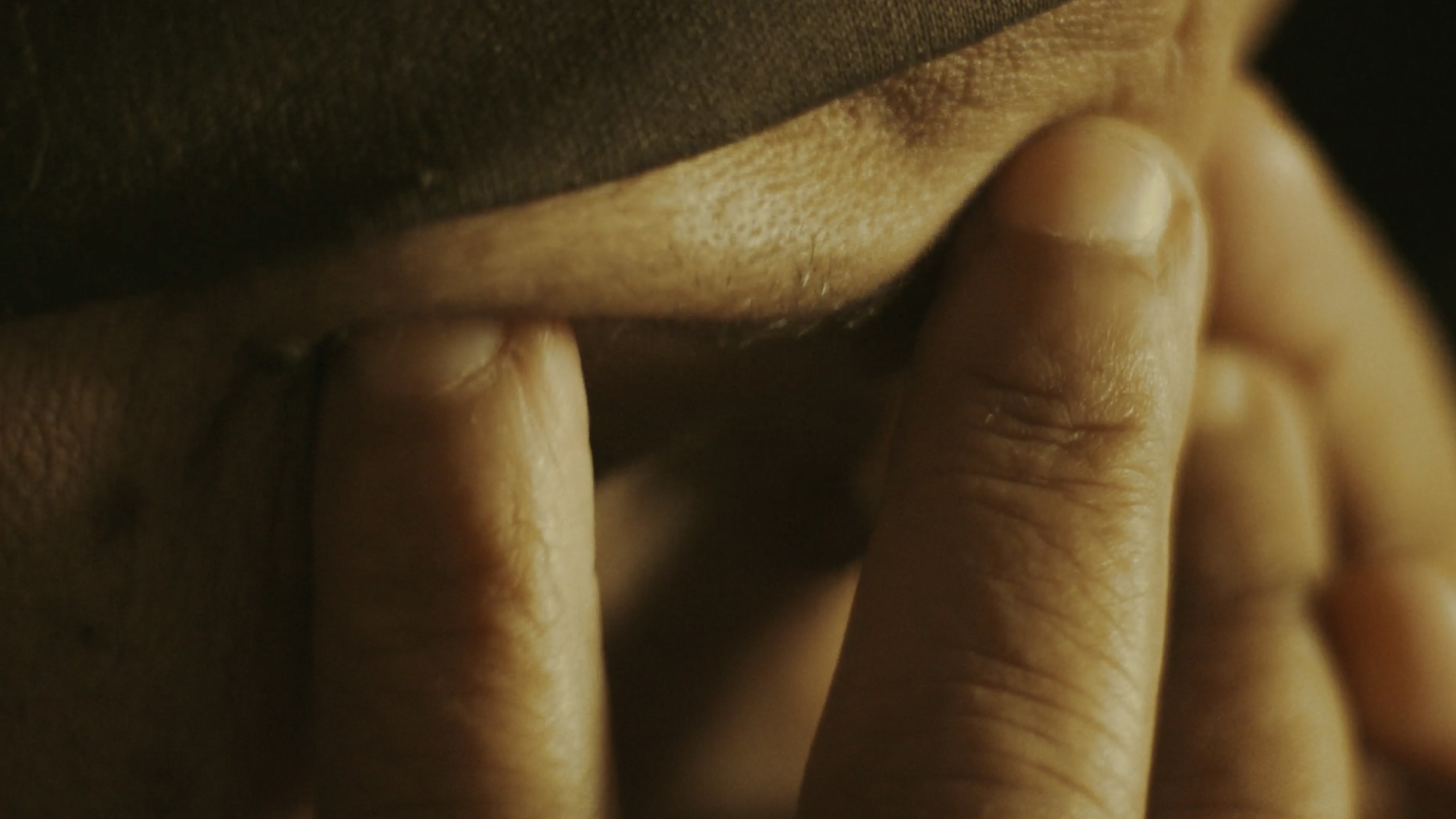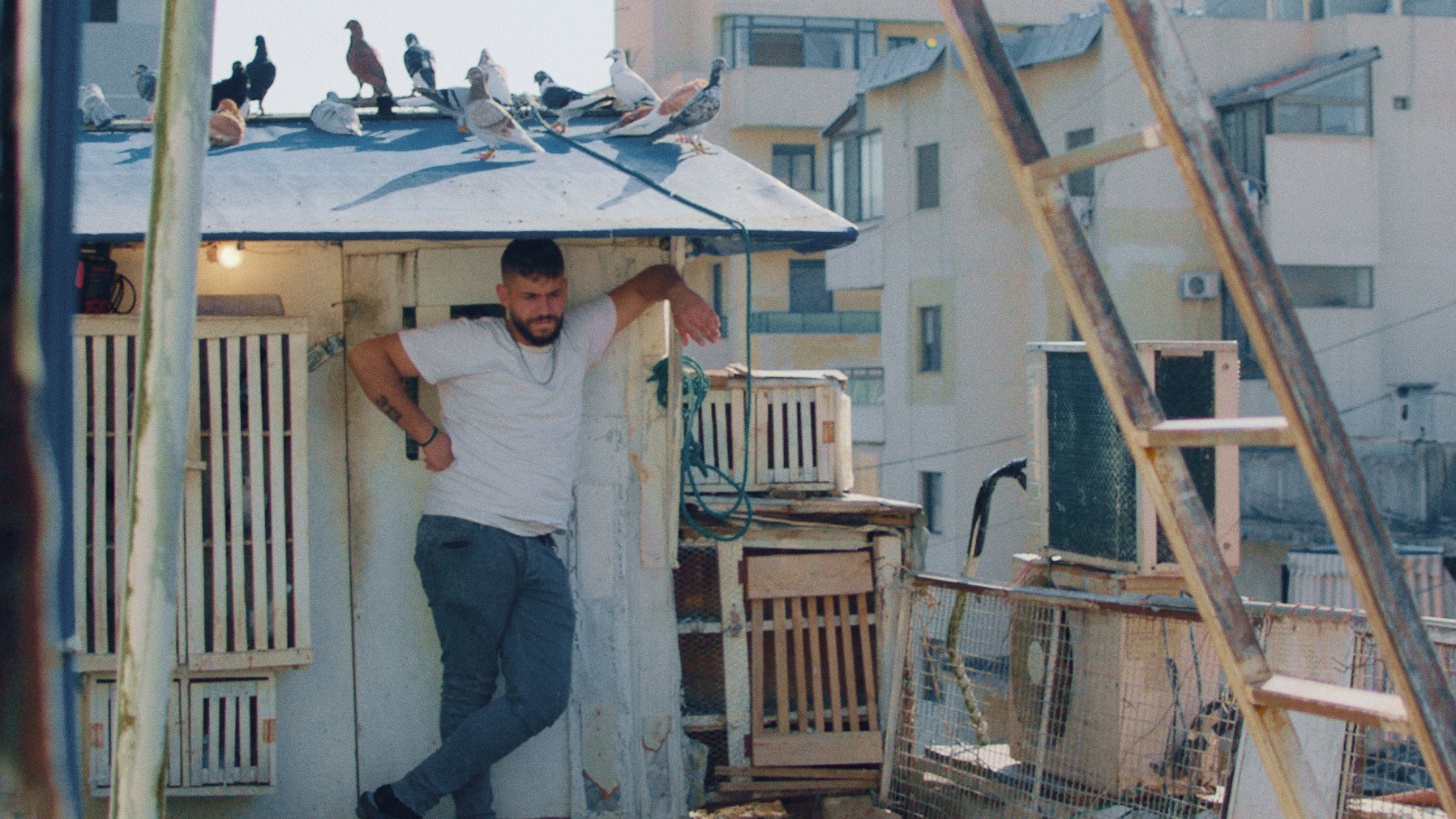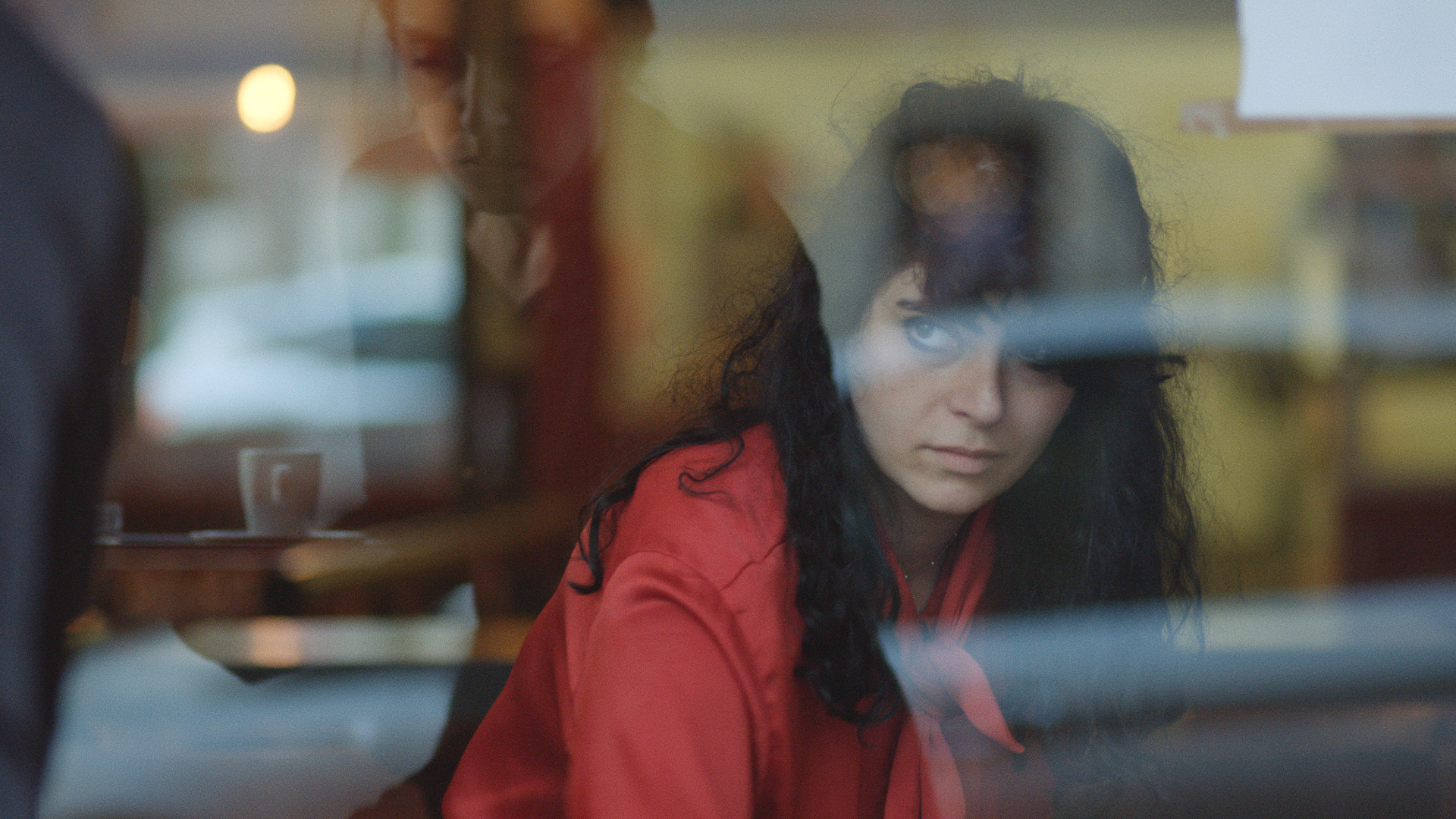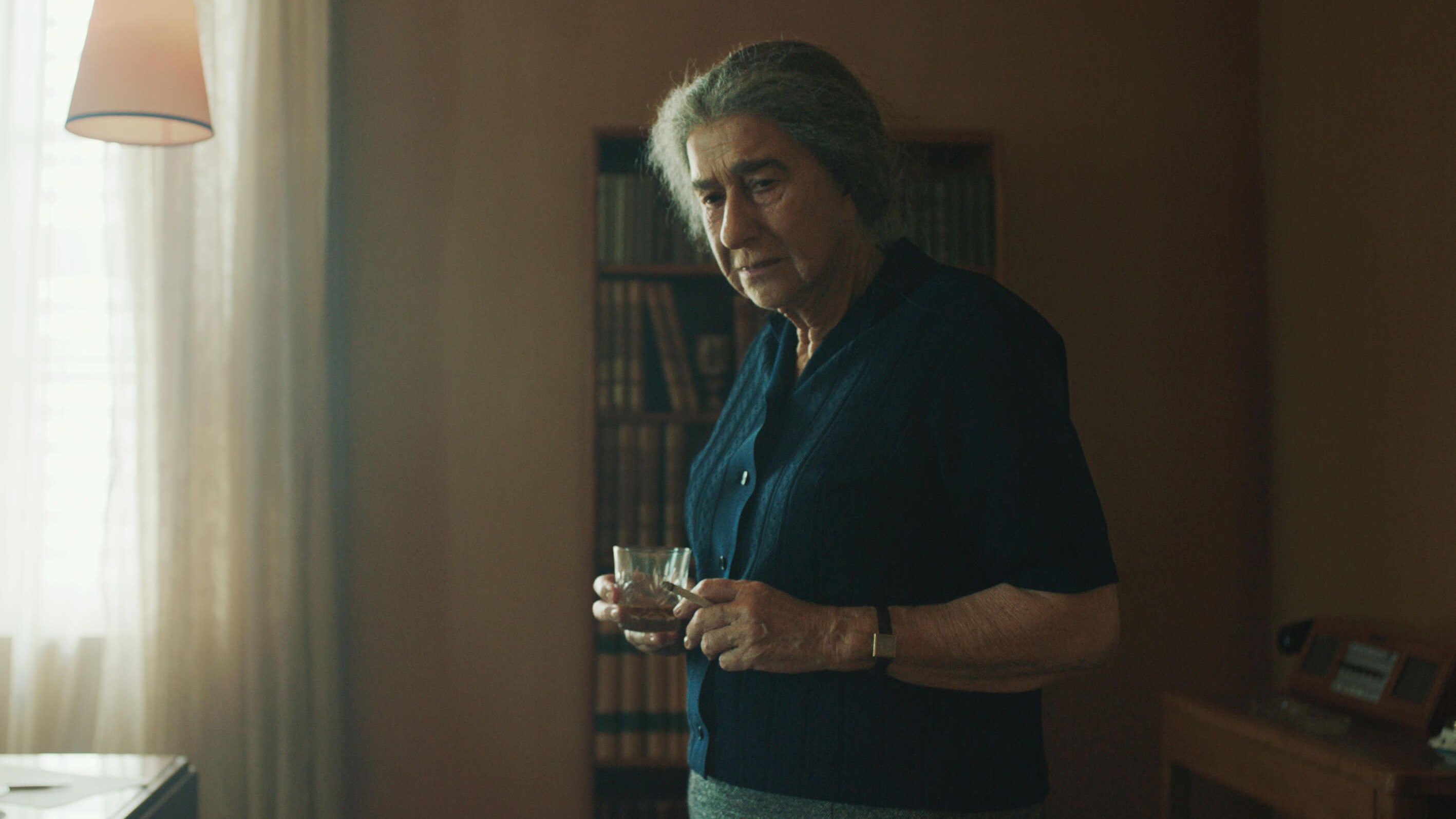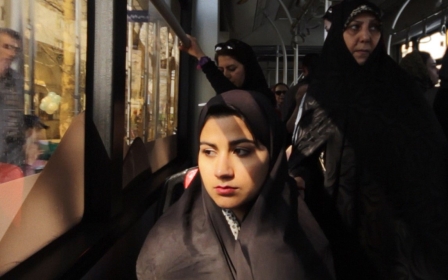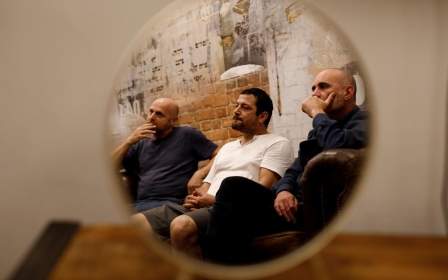Berlinale 2023: Race, misogyny and a fawning tribute to Israel's Golda Meir
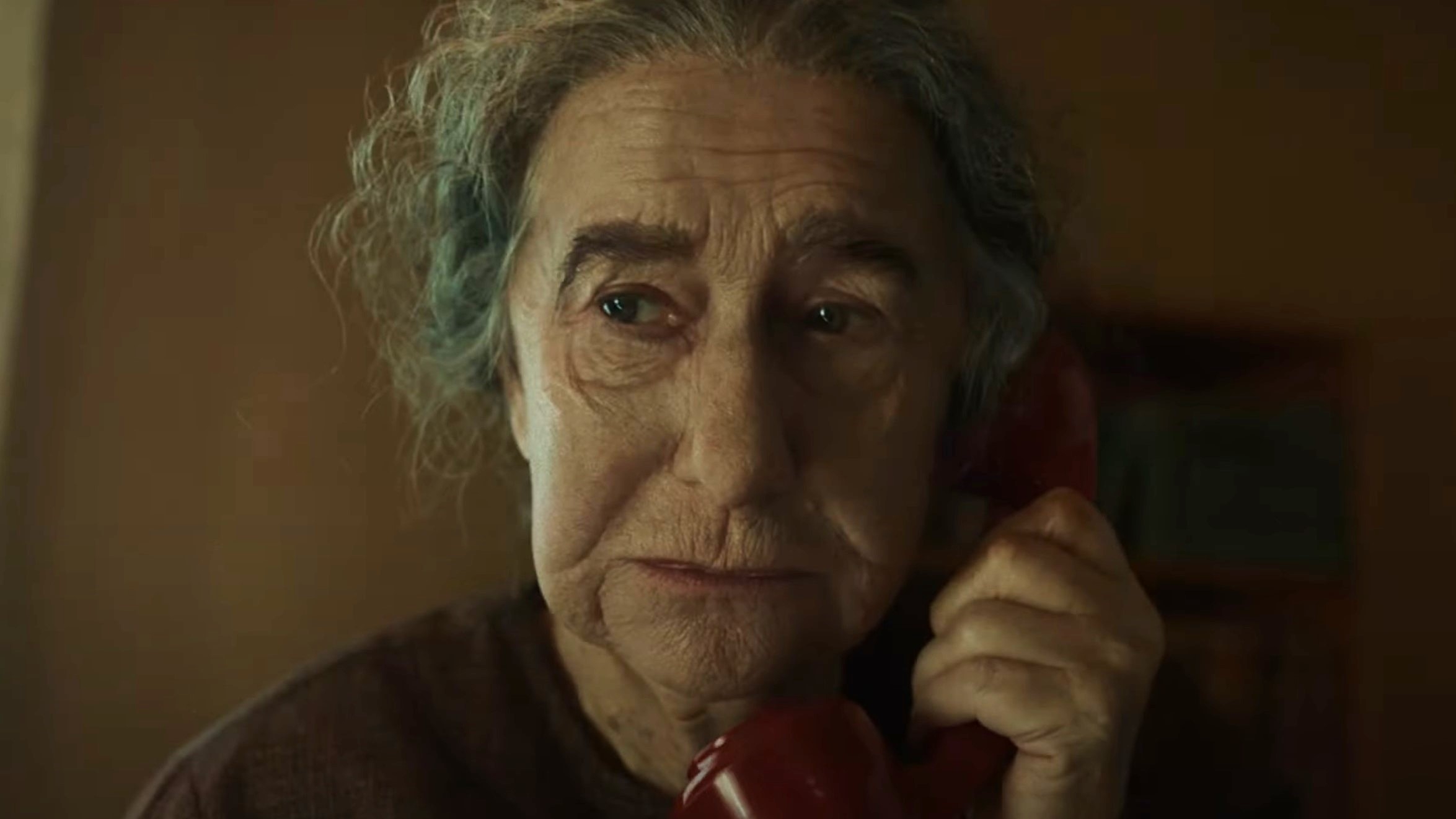
The Berlin Film Festival (Berlinale) has always been difficult to navigate, with seven sections, plus the new series sidebar and the shorts competition.
It’s almost impossible for a single critic to faithfully convey the breadth of its sprawling programme.
The main competition remains at the front of the festival and this year’s uneven competition, like last year’s, was criticised despite the palpable adventurousness in its programming.
The main targets for critics were the German titles chosen for the competition, the majority of which received hostile reactions from both the local and international press.
All five were apolitical, white-centric stories, devoid of urgency or topicality.
Financially affluent but creatively bankrupt, the German film industry has been in crisis for years.
The poor quality of films at the festival demonstrates why very few German productions are picked up internationally.
The best German films at Berlinale 2023 were largely non-German stories, or German stories partially informed by race.
More expansive in scope and worldview, these productions challenged the narrow parameters that have long defined German films and illustrated how exceedingly provincial the stories by the old guard are.
Teacher's Lounge and In the Blind Spot
Two films by second-generation German-Middle Eastern filmmakers stood out. The first was The Teacher’s Lounge, the fourth feature by German-Turkish director Ilker Catak, in which Leonie Benesch plays a Polish-German teacher determined to win over her students.
When a working-class Turkish student is blamed for a series of thefts in the titular lounge - an accusation that is condemned as racially motivated - political correctness propels Carla to expand her search for the “real” culprit and bedlam ensues.
Although the student is a periphery character, he is the catalyst of a multilayered and immensely tense drama mirroring a society that is befuddled and overly sensitive about its race and class issues.
None of the chaos would have occurred if the student, who was probably guilty, had not been Turkish.
Catak asks uneasy questions and the result is arguably the most compelling German film of the festival.
Just as compelling is In the Blind Spot, the latest outing by German-Kurdish director Ayse Polat.
Divided into three chapters, the first commences with a German film crew descending on a small town in north-eastern Turkey to shoot a documentary about a grieving Kurdish mother whose son disappeared 26 years ago.
A chain of events leads to a murder involving a rogue member of a state-sanctioned hit squad. Two consecutive chapters recount the killing from different perspectives, filling in missing gaps and ultimately resolving the mystery of the assassination.
A political thriller imbued with scorching commentary, this is Polat’s finest film to date and is a snapshot of a lawless place governed by xenophobia and paranoia.
Gripping from start to finish, it serves as an exploration of the violence unleashed by the Erdogan regime on the Kurdish population.
The use of the camera, both as a tool of surveillance and as a recorder of repressed truths, reflects the hazards of image-making in a culture terrified - yet fascinated - by what can be and what is shown.
In the months to come, In the Blind Spot will undoubtedly be banned in Turkey and will cause heated debates in German-Turkish circles.
The Burdened
Sadly, for the second year running, very few Arabic films were selected for the Berlinale.
However, one highlight was Amr Gamal’s The Burdened, the first Yemeni film to be screened in the festival’s official selection.
Set in war-torn Aden, the film follows a cash-strapped couple with three children facing a crisis when the wife falls pregnant. Realising it would be financially impossible to have the child, the pair embark on a treacherous odyssey to obtain an illegal abortion.
While the film is set in the Saudi-backed part of the country, politics take a backseat. The drama contains no discussion of the conflict between the Saudis and Houthi rebels with only mild hints that the latter are the antagonists of the war.
What Gamal does show is the depletion of war-torn Aden – a city that is rarely seen on film.
The director mostly frames his characters in wide shots, letting his camera linger on Aden’s cluttered exteriors after a stretch of dialogue ends, giving viewers the space to dwell on an ailing city on the brink.
Inflation, unemployment, and failing infrastructures render morality a luxury the country’s citizens can ill afford. For the couple, only bribes and lies can save their skin.
Undeniably important for opening Yemen up to the world and for its pro-choice discourse, The Burdened is nonetheless hampered by a meandering structure that eliminates suspense.
Resembling Ali Asgari’s Disappearance and Cristian Mungiu’s Romanian classic 4 Months, 3 Weeks and 2 Days, The Burdened lacks the ticking clock framework responsible for the tension that distinguished those abortion stories.
To over-criticise a picture produced in a country with no film industry and few resources might be unfair, however.
Despite its aesthetic inadequacies, The Burdened remains an important work that could open the door for a film movement in Yemen.
Under the Sky of Damascus
Less successful is Under the Sky of Damascus, a collaborative documentary by Syrian filmmakers Heba Khaled, Ali Wajeeh, and the Oscar-nominated Talal Derki (Of Fathers and Sons).
In an examination of the domestic abuse and misogyny facing Syrian women, the filmmakers employ five actresses who collect statements from numerous anonymous women and turn them into a play to be staged in Damascus.
Along the way, the actresses reflect on their own experiences. One chronicles how she was sidelined by the TV industry after refusing to sleep with a high-ranking governmental official.
Towards the end of the film, a plot twist exposes the documentary’s own line producer for manipulating the actresses for sex.
Given most Syrian films screened internationally are by filmmakers in exile, Sky is one of the few that ventures inside contemporary Damascus.
Wajeeh films the bustling streets, western cafes, and old souqs of a timeworn Damascus – a place where violence lurks, threatening to erupt at any moment, and society is only held together by the glue of state-enforced normalcy.
The film is essentially a collection of straightforward testimonials grouped in dispiritingly artless fashion and the Syrian capital proves to be its biggest asset.
As enraging as the accounts of the actresses are, the oversimplified manner in which they’re assembled raises a number of questions Khaled and her co-directors never answer.
If the play is allowed to be staged, how tolerant is Assad towards women calling men out? How corrupt is the TV industry? Are these actresses, who attended Berlinale, endangering themselves by taking part in the project?
Furthermore, the directors fail to make a tangible connection between violence against women and Assad’s sadistic philosophy of governance.
Sky is conceived in a timid format that lays bare the flaws of the filmmakers’ conception, and while the end result is an important record of women’s conditions in Syria, it is not transcendent cinema.
Anqa, Kash Kash and Les chenilles
More challenging in its approach is Anqa, Turkish-born Kurdish filmmaker Helin Celik’s documentary following two middle-aged Jordanian women who suffer systematic violence and rape at the hands of their spouses and family members.
With the women routinely feeling suicidal - and even contemplating the murder of their children in order to save them from the same fate - Anqa is a bruising chronicle of women struggling to carry on.
Extreme close-ups and a slippery narrative divulge the horrors the two have endured. Celik commendably refrains from showing the violence in an effort not to reproduce it, and instead allows her battered subjects to reveal only snippets of what happened.
The director’s experimental approach is not as accessible as Khaled’s, but it is more inspired and authentic.
Elsewhere, Lebanon was represented with two films. The first is Kash Kash, Vienna-born director Lea Najjar’s debut documentary feature about "kash hamam", a male-dominated game in which pigeon breeders fly their birds across the Beirut sky in order to lure their neighbours’ flock.
Najjar creates a portrait of Beirut’s less affluent Sunni neighbourhoods – a place without the Christian bourgeois and French influences that inform stories from the city’s east. It is more conservative and less accessible to women, and the world of the pigeon breeders is a reflection of the loss and aimlessness of a country descending into the abyss.
Unfortunately, Najjar fails to envelop her subjects in a form that conveys the spirit and dynamism of the sport. Instead, she adopts a rudimentary cinema verite format where she idly follows breeders in their routine, revealing little in the process.
Increasingly repetitive and monotonous, the film’s rhythm is hampered further by Najjar’s inability to capture the dizzying choreography of the bird game. Throwing in the 2020 explosion at the end completely sinks the narrative.
More striking is Les chenilles, Michelle, and Noel Keserwany’s short fiction that won the Golden Bear for the best short film.
The film starts with an account of historical silk harvesting in Lyon and its connection to Lebanon where female workers were exploited to create the fabric used to dress French women.
That connection becomes the springboard for the budding friendship between two immigrant women, one Lebanese and another possibly from Syria, both leading transitory lives working in a Lyon cafe.
The link between exploitation in French-controlled silk factories at the turn of the 20th century and the two modern Arab protagonists in Lyon is neither tangible nor convincing enough, while the identity of the second non-Lebanese protagonist will go over the heads of audiences who cannot discern the different Levantine accents.
These shortcomings, however, are compensated for by the filmmakers’ ingenious use of imagery, concocted via deft and remarkably sensitive editing.
Heartfelt in its sentiment and sincere in its intentions, Les chenilles is an emotionally charged, inventively told tale of solidarity, trauma, and female bonding, all realised with confidence and thoughtfulness.
Nearly every frame of the film drips with aching beauty, reflecting the protagonists’ loss and the hope they have found with one another. Les chenilles is a worthy winner.
Golda
Last and certainly least, the region has been cast as the unwieldy antagonist of one the most derided pictures of the festival: Golda, Guy Nattiv’s account of Golda Meir’s handling of the Yom Kippur War and the initial defeat of Israeli forces by Egypt.
Dame Helen Mirren dons a much-publicised, large prosthetic nose to play the famed Israeli prime minister who finds herself under heavy scrutiny when Egypt and Syria pull off a successful military operation on 6 October 1973.
Over the course of the following weeks, the chain-smoking, benevolent if headstrong Meir strives to curb mounting Israeli losses while preventing the Egyptians from entering Israel.
The extensively documented details of Egypt’s surprise attack on the holiest day in the Jewish calendar are touched upon in the film, including the claim that the late Egyptian billionaire-double agent Ashraf Marwan informed Israeli intelligence about the raid.
As expected from a production with western audiences in mind, many contentious details are brushed off, including Meir’s infamous comment that: “There were no such thing as Palestinians."
In fact, the Palestinian issue never figures in the narrative, which dislocates the Arab dispute with Israel from the Palestinian cause.
The recent revelation that dozens of Egyptian soldiers were murdered and dumped in a mass grave that has since become a popular tourist site is not featured either.
Nattiv, an Oscar-winning Israeli director, wishes to give the impression of impartiality, making Meir confess that Sadat – the invisible antagonist of the story – has indeed won the war and any subsequent victories will essentially be a form of saving face, of damage control.
And Meir, when pushed, is not afraid to play dirty, threatening to lynch captured Egyptian soldiers if Sadat does not identify and release her Israeli boys.
Because Golda cannot be too complex in order to attract a mass audience, the diverse reasons behind the conflict are overlooked
The problem is that Meir’s violent threats are portrayed as a reaction to Egyptian aggression. Because Golda cannot be too complex in order to attract a mass audience, the diverse reasons behind the conflict are overlooked as Nattiv roots the dispute in the Arab refusal to recognise Israel and their threats to wipe out the Zionist state.
Israel, as portrayed in Golda, comes off as a lone sheep surrounded by wolves that must defend itself by any means necessary. In other words, Nattiv wholeheartedly adopts the reductive rhetoric Israel has been propagating since 1948.
Its portrayal of Meir is predictably sanitised. As impersonated by Mirren, Meir is depicted as a wise, graceful, and dignified matriarch, hellbent on protecting her country.
She might resort to questionable measures, but only when other solutions cease to work. Her convictions are strong and always righteous.
Saddled with sluggish drama, unimaginative production design, and hammy performances (Ohad Knoller as a young Ariel Sharon in particular is unintentionally laughable), Golda has no merits whatsoever.
Most curiously though, why this movie now? At a time when global public opinion is finally swinging towards the Palestinian cause, and with the far-right gaining power through the new Netanyahu administration, what purpose is Golda supposed to serve? A reminder of how important the peace treaty Meir forced Sadat to sign was? A nod to the resilience of Israeli women in power at the time? A celebration of a historical figure with a chequered legacy?
Golda is an irrelevant, tone-deaf picture that demonstrates, once again, Hollywood’s cluelessness in dealing with the prickly history of the Israeli-Arab conflict.
Middle East Eye delivers independent and unrivalled coverage and analysis of the Middle East, North Africa and beyond. To learn more about republishing this content and the associated fees, please fill out this form. More about MEE can be found here.


